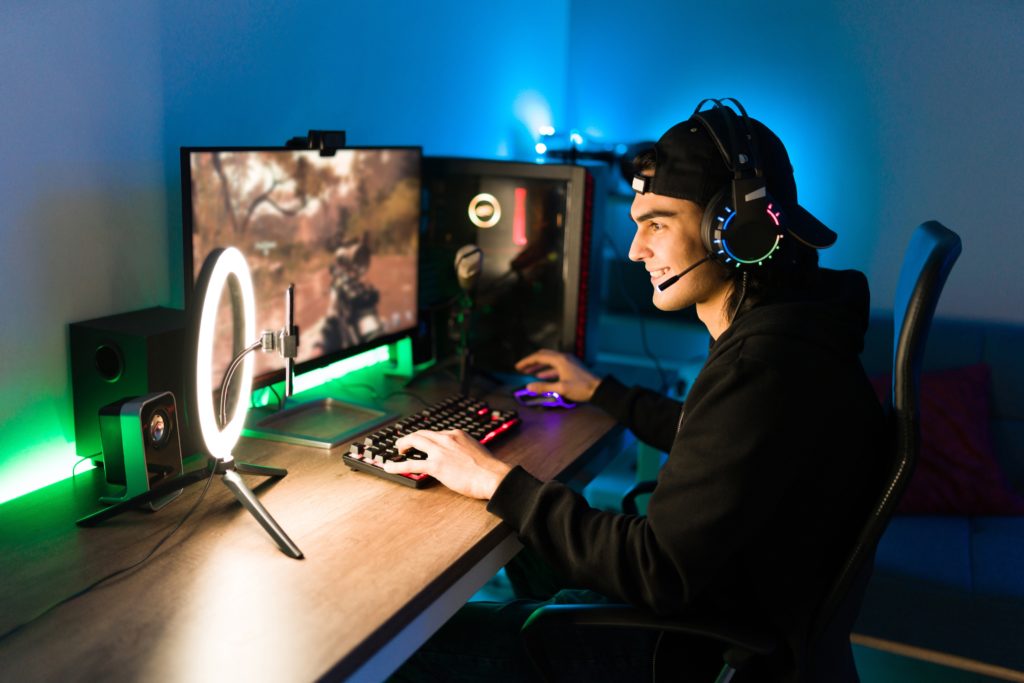Quick Hits
Daily brief research updates from the cognitive sciences

Iconsidered many titles for this short review. It could have read “Gaming Improves Mental Health of Teenagers” – that may have garnered a few more clicks – not stricly true though. It could also have read “Gaming Has No Impacts on Mental Health of Teenagers”, however, the data can be seen in two ways.
So, I settled on the simple question so as not to mislead too much. But the long and short of it is that we do not need to be overly concerned with gaming rotting our kids’ brains, causing emotional withdrawal, and a host of mental health problems. In the vast majority of cases there is no impact and in a sizable proportion heavy gaming seem to improve mental health! So, let’s dig into what this study did and didn’t find.
This data comes from the 2021 OxWell survey which analysis data from surveys of school children between 12 and 18 in the UK. This dataset had 12’725 participants. And what did they find?
They found that:
- 31.2% play games for at least 3.5 hours a day – this is the “heavy gamer” group
- There was no significant correlation between playing games and mental health issues
- 8% reported not gaming
- They classified 6 types of gamers
- 8% were classed as maladaptive (i.e. experience negative effects)
So, on average no real cause for concern. However, there are some surprising and worrying results also. One surprising result is that 44% of heavy gamers experienced higher well being than those who games less or not at all. Who would have though it? On the negative side there is, indeed, a subgroup who do experience negative effects. A small proportion of the heavy gamers experience a loss of control and wellbeing issues.
A notable subgroup was the 2% who are classed as maladaptive phone gamers, playing mostly on their phone, being mostly female, and are more likely to have experienced abuse and other traumatic events. This seems to point that traumatic life experience are pushing some individuals to maladaptive behaviours – and this also opens the door to intervening and being able to identify these and hence also pre-empt the issues.
It therefore seems that gaming is not the cause of mental health issues but can contribute to underlying issues. Of course, the argument could also be that gaming reduces other activities and so can also over longer terms have a negative impact. However, I reported here that those who spent most time on social media were also most social in person – also a surprise. Whether this translates over to gaming, I don’t know, but good to know at least.
But for now, we know that gaming shouldn’t be a worry for parents or others in society, but we do need to be able to identify and support those who are prone to maladaptive behaviours – be that in gaming, or other areas.

Andy Habermacher
Andy is author of leading brains Review, Neuroleadership, and multiple other books. He has been intensively involved in writing and research into neuroleadership and is considered one of Europe’s leading experts. He is also a well-known public speaker, speaking on the brain and human behaviour.
Andy is also a masters athlete (middle distance running) and competes regularly at international competitions (and holds a few national records in his age category).
References
Simona Skripkauskaite et al
Time Spent Gaming, Device Type, Addiction Scores, and Well-being of Adolescent English Gamers in the 2021 OxWell Survey: Latent Profile Analysis”
JMIR Pediatrics and Parenting, 18.11.2022
https://pediatrics.jmir.org/2022/4/e41480/
More Quick Hits
Metabolism Predicts Brain Health
Understanding the link between dementia, brain health, and various metabolic disorders such as obesity is important and gives us important clues in…
Super Agers Have Super Neurons
SuperAgers are those who live long, over 80, but retain their cognitive functions including a healthy functioning memory and seem to avoid neurodegenerative disorders such as Alzheimer’s…
How Nature Lowers Stress in Your Brain
Nature is overwhelmingly good for wellbeing but there are many chicken-or-egg problems with the research. This study…
Correcting Others Improves Group Learning
Some interesting and counter-intuitive insights into effective group learning…
Air Pollution In Childhood Changes Brain Structure
Recent research has shown some worrying impacts of pollution on the brain…
Think Like a Kid to Learn Better?
Think like a kid may sound like a good piece of advice – but with some interesting twists…






